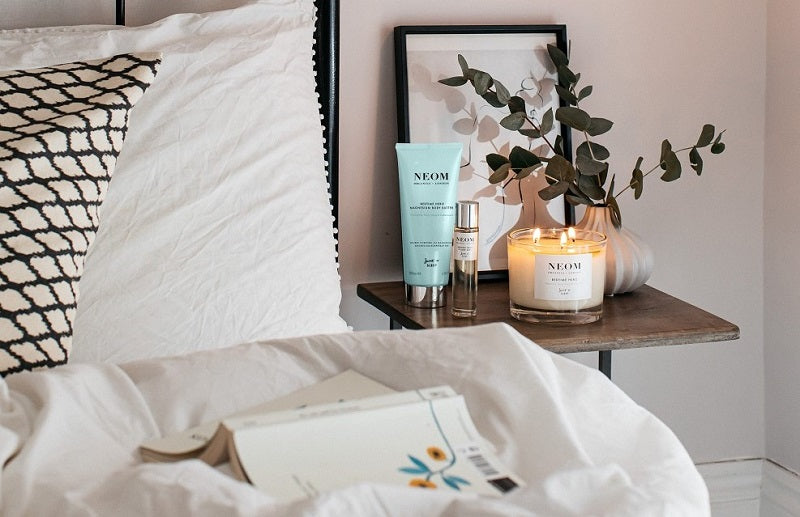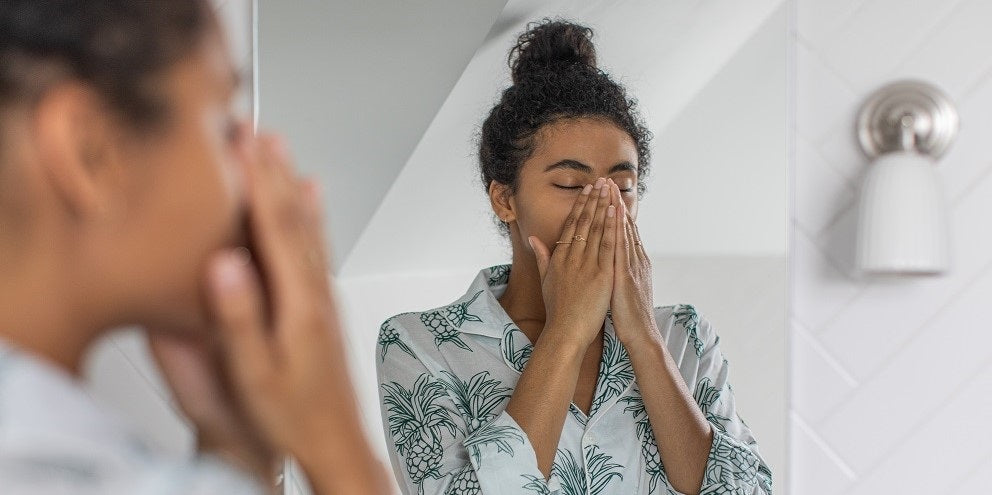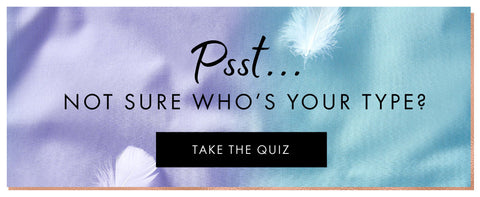Getting a good night’s sleep is for most people, the holy grail of wellness. If you’re lucky enough to get it on a regular basis, you’ll know just how restorative and refreshing those quality hours can be. If on the other hand, you’re someone who suffers from sleep issues, then you’ll be all too familiar with the detrimental effects of a night spent tossing and turning. As a nation of pretty poor sleepers (a recent report conducted by Loughborough University found that 75% of the UK suffer persistent sleep problems), the general consensus is that we’ll try anything that might help us get those elusive ZZZs. And while there are myriad effective different solutions that can make a big difference when it comes to helping you settle down to slumber, the humble breath might just be the missing link when it comes to solving our sleep crises for good.
The art of breathing, or specifically, breathing better, is a hot trend in today's busy wellness landscape, as more and more of us look for easy ways to improve our physical and mental wellbeing. It’s a fact backed up by Google, with a recent trends report revealing that searches for breathing apps are up by a massive 219% since last year. “Breathing is something we all know how to do and babies and toddlers do naturally,” says Rebecca Dennis, founder of Breathing Tree and author of And Breathe. “Yet the majority of us lose our natural ability to breathe fully: we are conditioned from an early age to control our feelings and emotions, and as a result our muscles tighten and our breathing becomes restricted. We hold our breath or shallow breath to control our feelings or pain and when this becomes habitual, we lose the ability to breathe deeply and connect to our bodies and ourselves.”
While some breathing techniques help to energise us when we feel lacklustre (Wim Hof’s famed breathing method is a case in point), there are also plenty of ways we can use our own breath to help us relax and prepare for better sleep. “We already take around 20,000 breaths a day so breathing as a concept is not a scary thing for most people,” says Stuart Sandeman, leading breath coach and founder of breath pod.me. “People already inherently know that breathing a little more deeply is helpful. Intuitively we divert to the breath in times of need, so it isn’t too much of a stretch. The breath can also be accessed in a very safe way and because you’re controlling it, you can also change it at any point.”
Why is breathing properly so important?
“In our increasingly demanding and complex world, very few people are aware of the detrimental effects that improper breathing can have on our health and general well-being,“ says Rebecca. And although we’re all born knowing instinctively how to breathe, doing it properly is a skill that’s not always easy to master. When we breathe, we deliver oxygen into every cell in our body, a vital process that every system relies on. Such is its potency that breathing properly can also aid digestion, boost immunity, reduce stress and help us to sleep better. “Around one in ten people have dysfunctional breathing such as hyperventilation syndrome,” says Stuart. “The breath is like eating; eat too much and you’ll feel the effects, eat too little and again, you’ll notice it. Breathing is a very potent and accessible force that can very quickly offer a huge release and create a big shift in your body and your mindset.”

Why is breathing important for sleep?
Over half of UK adults admit they don’t get enough sleep, in part due to increasingly stressful lives. Lack of good quality sleep can not only impact your cognitive skills and make you irritable and anxious, it can in turn cause you more stress, leading to a vicious circle of fatigue and fried nerves. “If we’re very stressed, we’re in a perpetual state of high alert,” says Stuart, a fact that can clearly have a serious knock on effect on our ability to relax and prepare for a good night’s sleep. “Breathing isn’t just a vital ingredient in keeping your body going, it’s also a powerful signal to your brain. You can control your stress levels by adjusting the way you breathe,” adds Rebecca. To try and get better quality sleep and more of it, we need to activate our parasympathetic system, essentially the rest and digest phase that is the body’s antidote to the sympathetic systems, AKA the body’s rapid response to dangerous or stressful situations. “To access this, it’s about slowing the breath down per minute and increasing our exhale,“ says Stuart. “I like to say, if in doubt, breathe it out.”
Using the breath for sleep
The key to getting a better night’s sleep then, lies in the ability to de-stress your mind, body and breath before bed. The vagus nerve is the longest nerve of the autonomic nervous system and plays a key role in the parasympathetic system. Stimulating the nerve activates this system, allowing your body to get into relax mode quicker, and therefore a better natural state for sleep. To do so you need to slow your breathing right down. “The 4-7-8 breathing exercise is a really good way to relax so that you can fall asleep,” says Rebecca. “[Firstly,] exhale through your mouth and make a ‘whooshing’ sound. Close your mouth and inhale in through your nose to a count of four. Hold this breath and count to seven. Then, exhale out through your mouth while making the same ‘whoosh’ sound and count to eight. If you complete this cycle, you have done one breath. Now go back and do this again three more times so that you have completed the cycle for four breaths in total.”
If you struggle with the idea of holding your breath (anyone with respiratory issues such as asthma may find it tricky) there are plenty of other methods to try. “I usually advise my clients to aim for five and ten; that’s breathing in for a count of five and out for a count of ten,” says Stuart. “What’s really important while you’re doing this is the mantra: slow, light and deep. You should be breathing slowly, as the counts suggest, lightly enough that there’s no sharpness of breath and you can hardly even feel hairs in your nose move, and deeply enough that you’re emptying and filling the belly before the chest and really using your diaphragm.”
The Best Breathing Apps To Try
Whether it’s to soothe your mind for sleep or simply to take a moment to pause and be more mindful, we all need a little help now and again. Here’s our pick of some of the best tools to try.
Breathe2Relax
A great option for absolute beginners, this easy-to-use app walks you through how to do diaphragmatic breathing, with written and recorded instructions, for maximum results.
Calm
A multi award-winning app for a reason, as well as plenty of meditation exercises and the excellent Sleep Stories, Calm’s intuitive and simple breathing exercises are designed to help you relax and de-stress whenever you need it.
And Breathe
Full of inspiring interviews and free bespoke guided breath exercises, this podcast is just the thing to listen to on your commute or as you get ready for bed.
Breathpod
If apps aren’t for you then why not try a group or one-to-one programme to facilitate better breathing? These excellent workshops help you better connect to your breath for myriad positive benefits.
Have You Seen Our NEW Bedtime Hero's?









